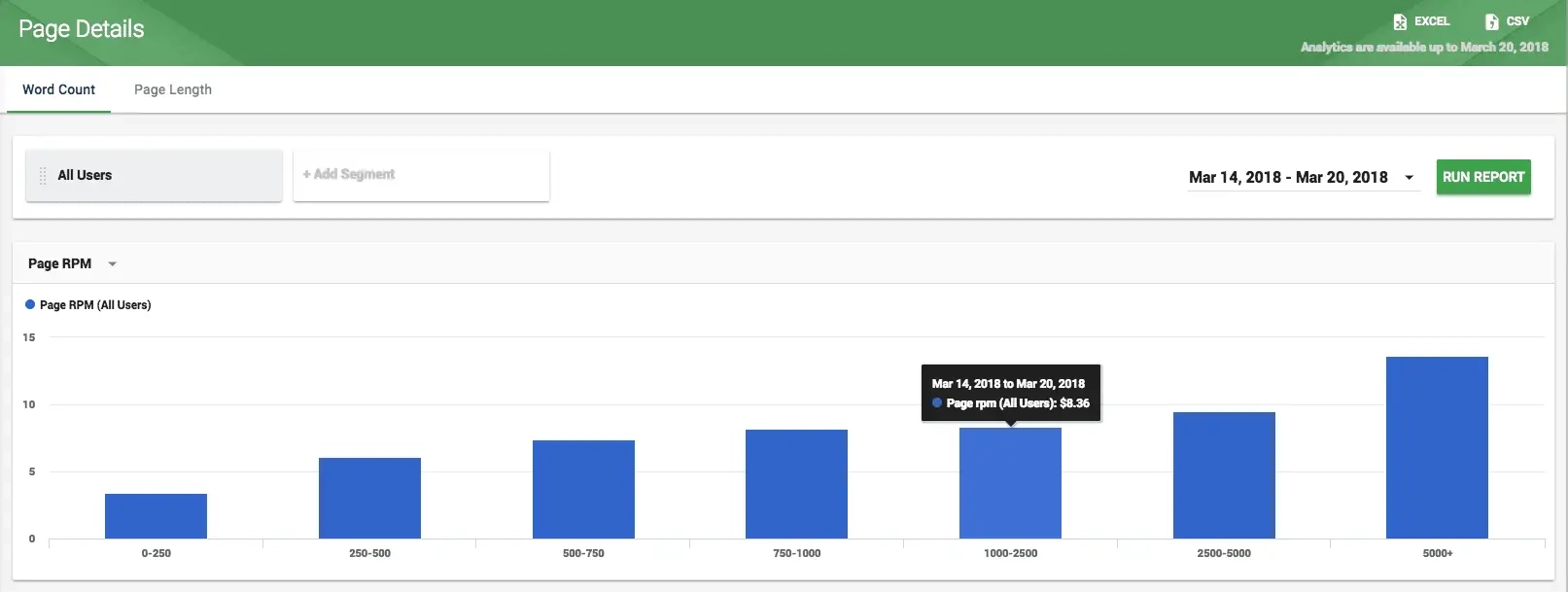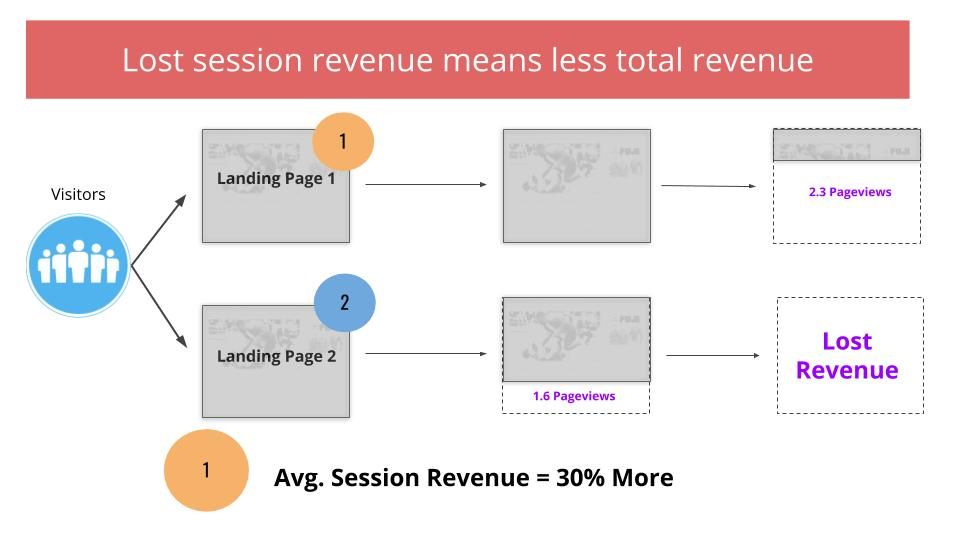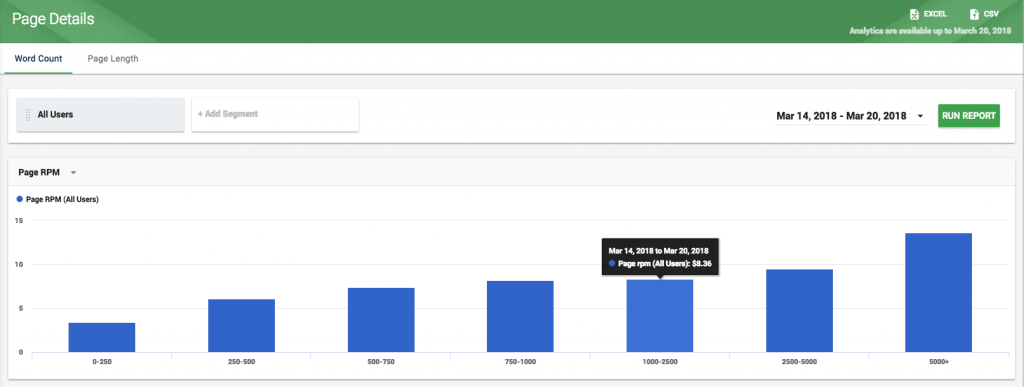3 Insights To Help You To Make Money From Websites

Make Money From Websites Using These 3 Insights

1.) Where your _best_ website revenue comes from
This is sort of an odd insight but one that must be carefully contemplated. The problem is that it can often be hard to determine which content monetization strategies are actually delivering the highest amount of revenue. There are a lot of potential options:
- Programmatic ads (display ads)
- Affiliate links and ads
- Member subscriptions
- Donations
- Direct deals with advertisers/sponsors
- Directly selling products or content (e-books, courses, etc.)
- Crypto-mining (seriously this is a thing — but not recommended)

Measuring different strategies by looking at EPMV by landing page
One of the easiest and most effective ways to understand how these different approaches might be affecting revenue is to look at the total session revenue generated from these sources by landing page.
**Why do this?** This will show you how much revenue is earned for a session (a complete visit from start to finish) from visitors that land on a specific page. This means you can evaluate the monetization strategies effect on things like bounce rate and pageviews per visit _AND_ total revenue per visitor/session (_EPMV_ – earnings per thousand visitors).
**How do I do this?** We talked about it in pretty [great detail here](https://blog.ezoic.com/maximizing-digital-revenue-using-rarely-used-insights/); however, I will do a quick overview in the numbered steps below.
1. Select a monetization strategy you want to test
2. Implement it on the site for a short period of time
3. At the end of the period, look at the total revenue from the chosen monetization source
4. Now, take the total earnings divided by (Visitors / 1,000) during the same period
5. This will give you your EPMV (total session revenue) for that strategy
**Example Calculation:**
- In March, your earnings were $1000 (AdSense) + $5000 (ADX) + $500 (Native Ads) = $6,500
- March Sessions – from Google Analytics – were 1,000,000 visits.
- EPMV was $6,500/(1,000,000/1000) = $6.50 EPMV
Using this approach you can see by landing page how those EPMVs might differ; as certain pages may end up performing better with different monetization strategies.
**Put this in context of the level of effort and resources necessary to make those strategies work.** For example, a direct advertising deal or sponsorship may deliver slightly more revenue — but if you have to pay for a salespersons salary, time, and more to get that deal done — did you really make more money from that strategy?
Ultimately, it is likely a combination of different strategies for all publishers. This mix of ads, direct deals, subscriptions, and other sources will be different for every publisher because the audiences are different for every publisher.
This same principle applies to every page of your website. Every website makes money differently from each visitor and each page.
**Understanding EPMV (aka session revenue) for every landing page can help you optimize revenue by …**
- content monetization strategy
- by page
This is a core way to optimize website revenue that publishers often overlook — or deem as too complicated or involved, but it couldn’t be easier (publishers using Ezoic can use the free [Big Data Analytics](/?page_id=1761) tool to evaluate and measure this automatically).
2.) Measure website earnings by word count

3.) Revenue by “time to interactive” page speed

Putting this in context of how websites make money
There are a lot of ways for websites to make money. Every site is different, and what’s more, every visitor and page is different.
This means that data is paramount in optimizing content monetization strategies on your site’s pages. Measuring which sources are the best alongside metrics on your actual content (word count) and website infrastructure (speed), can offer huge growth potential.
Typically this kind of granularity can see **publishers earning exponential increases in the amounts of money they earn from websites**. Additionally, this kind of thoughtful optimization generally lends itself to improvements in quality traffic as well; as publishers who go into this detail are usually aware of how these things are impacting user experiences.
Questions, thoughts, additional ideas. Share them below.

